by Ali Azhar in Big Data on October 13, 2022
For analyzing and managing data quality, here are the top tools of 2022.
The cornerstone for any data strategy or data-driven system is high quality data. As organizations realize the importance of data, there is an increased emphasis on improving and maintaining data quality. However, the vast volume and increasing complexity of data make it challenging to monitor and improve data quality on a continuous basis.
Using data quality tools can make it easier and more efficient to monitor and improve data quality. There are several data quality tools on the market, so it can be a daunting task to find the right tool for your needs. This guide covers a variety of the top options in the data quality tool market, ranging from free and open source solutions to more heavy-duty enterprise software suites.
Top data quality tools
Data is an extremely valuable asset that can have a major impact on business outcomes. This is why it is important to choose the right data quality tools and technology and learn how to best leverage the tools to obtain maximum value from data. Here are some of the top data quality tools to consider as you ramp up your data quality management strategy:
Data Ladder
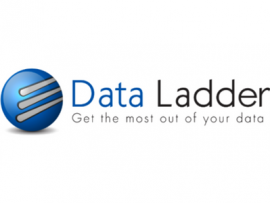
Data Ladder is a brand that is well-known for its end-to-end data quality solutions. The company offers DataMatch Enterprise (DME) software, which can be used for data cleansing, data profiling and deduplication. Data profiling tools offered by Data Ladder can be used to develop complete profile analyses across different datasets.
Data Ladder offers prosperity algorithms for data matching and sophisticated data recognition features. Another core feature is its ability to connect, prepare and integrate data from disparate data sources, even for data like physical mailing addresses.
Although Data Ladder’s data quality solutions are user-friendly and require minimal training, some advanced features can be tricky to use. There have been some reports of a lack of documentation for the most advanced features of Data Ladder.
OpenRefine
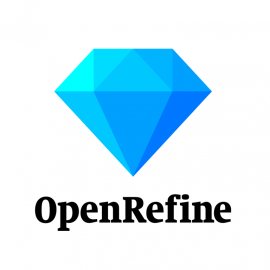
An important aspect of data quality is to keep the data clean and formatted correctly. OpenRefine, previously known as Google Refine, is an open source data quality tool that can work with datasets from multiple sources, cleaning and transforming data from one format to another.
OpenRefine is a Java-based tool that allows users to work on data directly from their machines, which supports additional data privacy. However, they also have the option of using OpenRefine web services for online data quality operations.
A downside to OpenRefine is that it has a steep learning curve; several users have reported issues with its initial configuration and implementation.
Talend

Using Talend data quality solutions, users can quickly identify issues and spot data anomalies using statistics and graphical representation. It also offers various tools for data standardization, data cleaning and data profiling.
One of the core features of Talend’s data quality solutions is the ability to profile information instantly and mask data in real time. The tool also offers recommendations generated by proprietary machine learning algorithms to improve and maintain data quality. The self-service interface is ideal for technical and business users.
There is also a Talend Trust Score system to evaluate and compare the quality of datasets, offering actionable insights to improve the quality of data. As far as potential cons go, some users have reported speed issues with Talend, noting that it can take longer to complete tasks compared to competitors’ similar products.
Ataccama
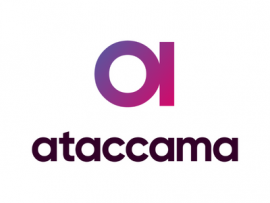
Ataccama‘s flagship data quality product is named Ataccama ONE. It is an open source platform that integrates seamlessly with other data management tools and offers multidomain functionality. There is AI functionality for quick results and recommendations that help users understand what tasks are required to improve data quality.
Data quality rules across Ataccama tools can be customized to meet the requirements of different types of users. Ataccama ONE is geared toward data profiling with a variety of useful features, including advanced data profiling metrics and foreign key analysis. Ataccama DQ Analyzer can be used to simplify data profiling tasks and make them more efficient.
Customer reviews have pointed to the difficulty of implementing Ataccama ONE, so be prepared for a steep learning curve. However, once the application is configured, it should be fairly straightforward to use.
Dataedo
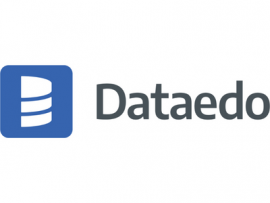
Data quality tools offered by Dataedo can help users understand and correct flaws in data across the entire data lifecycle. Top features of Dataedo include the ability to gather feedback on data quality from users and an evaluation tool for data trustworthiness.
The data lineage diagrams offered by Dataedo provide context through data mapping, while user feedback on data quality is stored in a data catalog.
Organizations can provide data log access to users so they can understand how data works, how to minimize margin errors and how to post feedback. There are also features that support data democratization efforts, such as a business glossary.
Precisely
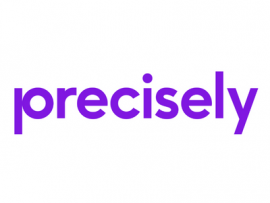
Data quality solutions offered by Precisely include Trillium Quality for Big Data, Trillium DQ and Trillium Cloud. There are also specialized data quality suites offered by Precisely Trillium for use with Microsoft Dynamics and SAP. The strength of Precisely Trillium is in the various specialized functions it offers and the strong customer support it provides.
The downside of Precisely Trillium is that it can be difficult to use. The complex installation procedures and challenging user interface are often customers’ top complaints with Precisely software. Tech-savvy users might not find Precisely Trillium challenging to use; however, other users will most likely need structured training.
Informatica
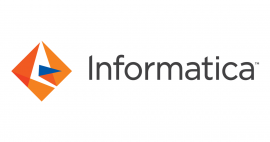
There are several data quality products offered by Informatica, including Informatica Big Data Quality and Informatica Data Quality (IDQ). One of the top data quality features that Informatica solutions offer is metadata-driven machine learning to identify data errors and inconsistencies. Data stewards and other data users can automate a wide range of data quality tasks and set up reminders.
When it comes to Informatica solutions, there is room for improvement in ease of use. Several users have reported that it is challenging to create rules and dashboards in Informatica data quality solutions. There is also a lack of integration with other technologies, although Informatica continues to address this issue by offering new integration releases over time.
What is data quality?
Data quality is a measure of the condition of data based on characteristics such as its integrity, validity, uniqueness, accuracy, timeliness, consistency and reliability. Data that is high quality is well suited to serve its specific purpose.
From a business perspective, data quality can have a major impact on the ability of the business to gather business insights, make strategic decisions, improve operational efficiency and improve other business outcomes. Common issues that can compromise data quality include poorly defined data, incomplete data, duplicate data, incorrect data or data that is not securely stored.
Data quality is measured by organizations so they can identify and fix data issues before they turn into bigger business problems. There are various methodologies used to assess data quality. For example, there is the Data Quality Assessment Framework (DQAF), which is used to measure data quality using the data dimensions of consistency, timeliness, validity, completeness and integrity.
It is common for organizations to perform data asset inventories to establish a baseline of data quality and then to measure and improve based on those baseline scores.
What are data quality tools?
Combing through datasets to find and fix duplicate entries, fix formatting issues, and correct errors can use up valuable time and resources. Although data quality can be improved through manual processes, using data quality tools increases the effectiveness, efficiency and reliability of the process.
Data quality tools are used to monitor and analyze business data, determining if the quality of data makes it useful enough for business decision-making while also defining how data quality can be improved. This can include gathering data from multiple data sources that exist in different formats and effectively scrubbing, cleaning, analyzing and managing the data to make it ready for use. Data sources can be databases, emails, social media, IoT, data logs or other types of data.
Key features of data quality tools
- Data profiling: Analyze and explore data to understand how it is structured and how it can be used for maximum benefit.
- Connectivity: Gather data from all sources of relevant enterprise data, including internal and external data.
- Data parsing: Allows the conversion of data from one format to another. A data quality tool also uses data parsing for data validation.
- Data matching: Algorithms that help to identify and eliminate duplicate data.
- Monitoring and notifications: Monitor data throughout the data lifecycle and notify administrators and management of any issues that need to be addressed.
- Data cleaning and standardization: Help to identify incorrect or duplicate data and modify it according to predefined requirements.
Why are data quality tools important?
Companies are increasingly taking a data-driven approach to their decision-making. This includes decisions regarding product development, marketing, sales and other functions of the business.
And there is certainly no lack of data available for these decisions. However, the quality of data remains an issue. According to a study by Harvard Business Review, only 3% of companies earn data quality scores that were rated as acceptable.
One of the advantages of using data for decision-making is that you can derive valuable, quantitative insights to achieve positive business outcomes such as reduced costs, increased revenue, improved employee productivity, increased customer satisfaction, more effective marketing campaigns and an overall bigger competitive advantage.
The effectiveness of business decisions is directly related to the quality of data, which is why data quality tools are so important. They help extract greater value from data and also allow businesses to work with a larger volume of data, using less time and resources to comb through data and maintain its quality. Data quality tools offer various features that can help sort data, identify issues and fix them for optimal business outcomes.

Leave a Reply